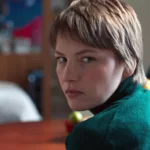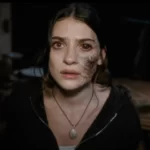Midge Ure had enjoyed the trappings of pop music success in the 1980’s through bands like Visage and Ultravox, then a phone call changed his life. Bob Geldof asked Midge if he could help write a song to raise money for the millions starving in Ethiopia. It became the biggest selling single in UK history and then Band Aid begat the global phenomenon that was Live Aid. On the eve of his Something From Everything tour Trevor Jackson spoke to Midge about the event that changed his life and his ongoing work with Band Aid.
From selling millions of records to feeding millions of people, that’s a seismic shift in anyone’s life. What happened after Band Aid?
It’s funny because it was a double edge sword for me. The Band Aid and Live Aid thing was immensely successful, but it also took me away from Ultravox for years. I’d recorded a solo album during that period and had a huge hit with If I Was with a world tour that followed, so it was a long, long time before Ultravox finally got back together and by then we’d all moved on, our lives had changed – in my case significantly.
Tell me about that change. You couldn’t have gone to Ethiopia and not been affected by what you saw first hand.
After Band Aid and then Live Aid happened the media began to lose interest, but of course it wasn’t the end of the famine. So Bob and I had to find ways to get the cameras rolling again to keep the topic front and centre and the only way to do that was if one of us went there ourselves. I went to a camp near Addis Ababa and they told me that day was a good day because only three kids had died that morning. I was in awe of the people running those camps, they worked tirelessly and selflessly and they had the most harrowing, hideous jobs – choosing who could get into the camp and who couldn’t. It was unbelievable – what a choice for anyone to have to make. The experience really affected me. I went home to my 8 bedroom house on the river with my huge garage full of classic sports cars and I thought this is ludicrous so I proceeded to get rid of them all. It changed everything. It changed my thought process and it made me think about what was really important in this world.
Can you give some examples of the difference you’ve seen as a result of Band Aid?
Twenty years later you could see the dramatic improvements to people’s lives, but by then we also realized that we weren’t just fighting famine, we were fighting climate change. In 1985 we didn’t understand that because we didn’t know about it, but of course it continues to this day. The local farmers can’t depend on the rain, the rains don’t come, the crops fail and the famine continues. But what we did change was the infrastructure. Farmers have been taught not just to rely on one crop as a source of income, so now they keep bees and make honey, they keep chickens – they diversify a little bit. They also used to chop down trees to keep themselves warm, but that led to deforestation and the desert would then further encroach on their land, but now they’ve learned not to do that. There’s been a huge difference because the ones that I first saw that were about to die are now young, educated adults. They now think differently, so it would never go back to the crisis level that it once was.
How does it make you feel to have been instrumental in that change?
You know I can’t think of it that way. I’m just a guy who strums a bit of wood with six strings on it. It doesn’t equate, it doesn’t make any sense. We just came along at the right time and used a medium that everyone understood which was music. Maybe if we tried to do the same thing now it wouldn’t work because it’s a different world. Back then music was the be all and end all for so many young people, today there are a million other things to distract you. We used music at the right time for the right reasons and it worked. We engaged a wealth of people who normally wouldn’t have got involved in charity work and in doing that we changed the image of what a charity could be.
What about the criticisms of charities for third world countries in that it’s often said that they help fund corrupt regimes as much as those that really need it. How do you respond to that?
It’s a very complex situation and a difficult question to answer, but what we didn’t do is turn up in Ethiopia and give people suitcases full of money. It doesn’t work that way. The only way we could do what we intended to do and what we said we would do and we did it conjunction with already established charities like UNICEF, Save The Children or Médecins Sans Frontières. The deal was that we would co fund their projects but we would not pay any overheads. We don’t give the money to charities who have massive overheads where only a percentage of the money goes to the problem.
We didn’t want to reinvent the wheel when it comes to charity work. To this day we’ve never had an office, we’ve never had a telephone – we’ve done it all by begging, stealing and borrowing. The only people who get paid from Band Aid are the accountants because they are responsible for these vast sums of money of which we have to be accountable – everything has to be squeaky clean and above board. You’ve got to think of your question this way, “does it make a difference?” and you’ve got to imagine what life would be like there if we’d not done it. Irrespective of how big the mountain is to climb you have to start somewhere, you’ve got to do what you think is right first and foremost.
Midge Ure plays The Triffid in Brisbane Sunday March 12.
*This interview forms part of a podcast that looks back over the career of Midge Ure. The full interview is available from www.sounddistractions.com




